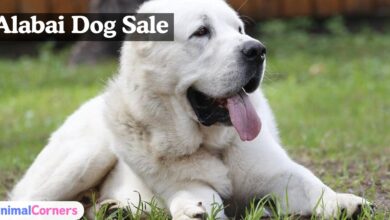Can Dogs Use Inflatable Swimming Pools

Inflatable swimming pools have become increasingly popular for recreational use due to their convenience and affordability. These pools offer a fun and refreshing way to enjoy the water during the hot summer, making them a common feature in many backyards.
As these pools grow in popularity, pet owners have started to wonder whether their canine companions can join the fun. This leads to the intriguing idea of dogs using inflatable swimming pools.
In this outline, we aim to explore “Can Dogs Use Inflatable Swimming Pools“ and the types, feasibility, benefits, and precautions involved in allowing dogs to play in these inflatable pools.
Understanding how to safely create a dog-friendly environment in an inflatable dog pool will enhance the bonding experience between pets and their owners while ensuring the well-being of their furry friends.
Types of Inflatable Swimming Pools Suitable for Dogs
When choosing an inflatable swimming pool for dogs, it’s essential to consider several types that cater to different needs and preferences.
Here are some common types and critical points to think about:
- Standard Inflatable Pools: These simple, basic designs are perfect for dogs who enjoy splashing around and cooling off on a hot day. They are available in various sizes, making it easy to pick one suitable for your dog’s size and space availability.
- Elevated Inflatable Pools: With these pools, the water level is raised above ground, which can help keep the pool cleaner by reducing the amount of dirt and grass that gets in. This type is also ideal if you want to share the pool with your pet, as it allows easy human access.
- Cooling Pools: Specifically designed to help keep dogs calm, these pools often feature materials that reflect heat and provide a consistently more excellent water temperature, perfect for overheated or thick-coated dogs during summer.
- Shaded Inflatable Pools: These come with built-in shade covers, protecting dogs from the harsh sun, reducing the risk of sunburns or heatstroke, and making it more comfortable for them to stay in the pool longer.
- Interactive Inflatable Pools: Some pools have added features like built-in sprinklers or water cannons to provide play-loving dogs an engaging and fun experience. These features can keep dogs entertained and promote physical activity.
- Portable Inflatable Pools: Lightweight and easy to set up, these pools are perfect for pet owners on the go. Whether heading out on a camping trip or to a friend’s backyard, these pools offer convenience without sacrificing fun.
- Large-Sized Inflatable Pools: Designed for households with multiple dogs or larger breeds, these pools provide plenty of space for swimming and playing, allowing dogs to fully stretch out and enjoy the water.
Factors to Consider

- Designs and Sizes Inflatable pools come in various designs, from round to rectangular, and in different sizes to accommodate small and large dogs alike. Choosing a pool that’s big enough for your dog to move around comfortably is essential.
- Material Durability Dogs have sharp claws, so the pool material should be solid and puncture-resistant. Look for pools made from durable PVC or vinyl. Some pools also come with reinforced bottoms for extra strength.
- Cost and Availability The inflatable pool prices vary depending on their size, type, and extra features. Standard inflatable pools are usually the cheapest, while shaded or interactive pools tend to cost more. Many of these pools are widely available online or in pet stores.
You may also Like: How to Groom Shelties: Complete Guide 2024
Benefits of Using Inflatable Pools for Dogs
When you ask, “Can dogs use inflatable swimming pools during the summer season?” Here are the top benefits that you should consider.
Physical Exercise and Its Role in Maintaining a Dog’s Health
Inflatable pools are an excellent way for dogs to exercise. Like humans, dogs need regular physical activity to stay healthy and strong.
Swimming is an excellent workout for dogs because it uses many muscles in the body while being easy on their joints. This is especially good for older dogs or those with joint issues. Regular swimming can help maintain a healthy weight, improve stamina, and keep your dog’s heart in good shape.
Mental Stimulation and the Enrichment Offered by Water Play
Playing in water doesn’t just help dogs physically—it also challenges them mentally. Water play can provide mental stimulation as dogs explore the sensation of water and figure out how to move through it. This form of enrichment keeps their brains engaged and can help prevent boredom.
Giving your dog toys or playing games in the pool can make it even more fun and mentally rewarding.
Temperature Regulation During Hot Weather Seasons
During hot summer weather, dogs can overheat quickly. Inflatable pools offer a simple way for dogs to cool down. Spending time in the water helps dogs regulate their body temperature more effectively.
This is particularly important for breeds with thick coats or hot climates. Cooling off in a pool can prevent heatstroke and make summer days more enjoyable for your canine friend.
Precautions When Allowing Dogs in Inflatable Pools

When letting your dog enjoy an inflatable pool, taking certain precautions to keep them safe and healthy is essential. Here are some key points to consider:
Supervision Requirements to Prevent Accidents
Always keep an eye on your dog when they are in the pool. Even if your dog is a good swimmer, accidents can still happen.
They might get too tired or accidentally swallow too much water. By watching your dog closely, you can help prevent any mishaps and assist immediately if something goes wrong.
Ensuring the Water Level is Appropriate for a Dog’s Size
The depth of the water should be suitable for your dog’s size. The water should be shallow enough for smaller dogs to stand comfortably without struggling.
Larger dogs can handle deeper water, but it should not be too deep to cause stress. Adjusting the water level ensures your dog remains comfortable and safe while playing in the pool.
Regular Maintenance and Cleaning to Prevent Algae and Bacteria
Regular cleaning of the inflatable pool is essential to keep the water fresh and free of harmful things like algae and bacteria. Clean the pool often to remove dirt or fur, especially after your dog has used it.
Use pet-safe cleaning supplies and rinse thoroughly to ensure no harmful chemicals are left behind. Regular maintenance helps keep the pool a clean and healthy place for your dog.
Also Explore: How to Groom Shelties: Complete Guide 2024
Training Tips for Introducing Dogs to Inflatable Pools
Training your dog to enjoy an inflatable pool involves patience and the right approach. Start by gradually getting your dog used to the water, a process called acclimatization.
Begin by letting your dog explore the pool when it’s empty, and then slowly add a little water each time they visit. This will help your dog become comfortable with the pool without feeling overwhelmed.
Use positive reinforcement techniques to encourage your dog’s interest in the water. This means rewarding your dog with treats, praise, or a favorite toy whenever they approach or enter the pool.
Positive reinforcement helps your dog associate the pool with good experiences, making them more likely to enjoy water time.
It’s crucial to recognize signs of anxiety or discomfort in your dog. Watch for behaviors like trembling, whining, or attempting to escape the pool area. These can indicate that your dog is not comfortable with the water yet.
If you notice these signs, step back and proceed more slowly, allowing your dog more time to adjust. Be patient, and remember that every dog learns at its own pace.
Potential Risks and How to Overcome Them

Puncture Risks from Claws and How to Protect Against Them?
When your dog uses an inflatable pool, one risk is puncturing the material with claws. Dogs often dig or scratch surfaces, leading to holes or tears in the pool. To prevent this, consider these simple steps.
First, look for puncture-proof dog pools. These pools are made from tougher materials like reinforced PVC or heavy-duty vinyl. Such materials are more resistant to sharp claws, making them less likely to get damaged. Before letting your dog into the pool, trim their nails. Shorter nails are less likely to cause harm.
Additionally, placing a mat or towel at the bottom of the pool can add an extra layer of protection. If your dog scratches or digs, it’s less likely to reach the pool surface directly. Constantly monitor your dog’s behavior in the pool and discourage any rough play that might result in scratches or tears. These precautions can help keep your inflatable pool in good condition and extend its life for more fun-filled days.
Risk of Drowning and Safe Pool Designs for Dog Use
Although it’s rare, there is always a risk of drowning when dogs are in or near water.
Choosing a pool designed with dog safety in mind is important to reduce this risk. Opt for pools with gradually sloping sides instead of steep walls, which make it easier for dogs to get in and out by themselves. Some pools also come with ramps or steps, which can be very helpful.
Always supervise your dog while in the pool to prevent accidents and ensure it has a safe way to exit the water.
Chemical Use in Pool Water and Ensuring Dog Safety
Like swimming pools for humans, pools for dogs might require chemicals like chlorine to keep the water clean. However, too many chemicals can be harmful to dogs.
It’s important to follow the product instructions carefully and use only dog-safe products if possible.
Make sure to rinse your dog’s fur with fresh water after swimming to wash off any chemicals. This helps prevent skin irritation and keeps your dog safe and healthy. Always opt for the minimum amount of chemicals needed to maintain clean water.
Conclusion
In summary, inflatable pools offer a delightful and refreshing way for dogs to enjoy the summer while providing several health benefits, such as cooling off and staying active. However, it’s essential to take appropriate precautions, from supervising your dog while in the pool to maintaining the cleanliness and safety of the water environment. Inflatable pools can be a safe and enjoyable option with careful planning and attention despite the inherent risks, such as punctures and potential drowning. Overall, their practicality and fun can add to the quality of your dog’s summertime experience. We encourage dog owners to explore water activities responsibly, ensuring each splash-filled adventure is as safe and enjoyable as possible.
FAQs
Are inflatable pools suitable for dogs?
Inflatable pools can be an excellent option for dogs, providing a fun and cooling environment, especially in hot weather. They allow dogs to exercise, relax, and stay calm. However, it’s important to ensure that the pool is specifically designed for pet use, taking into account durability and safety features that accommodate a dog’s play style.
Will a dog break an inflatable pool?
While it’s possible for a dog to break an inflatable pool, especially if it is not made from durable materials, using a pool specifically manufactured for pets can significantly reduce this risk. Pools crafted from reinforced materials like durable PVC are more resilient against potential damage from a dog’s activity.
Will dog claws pop an inflatable pool?
Dog claws can pop an inflatable pool, primarily if the pool’s material is not robust enough. To prevent this, opt for pools made with rigid, puncture-resistant materials and trim your dog’s nails to minimize the risk of punctures. Adding a protective layer, such as a towel or mat at the bottom of the pool, can also provide additional protection.
Are inflatable pools safe for all dog breeds?
Inflatable pools can be safe for most dog breeds, but factors like size, temperament, and swimming ability should be considered. Smaller breeds or those not used to water may need more supervision and training. It’s essential to ensure the pool is appropriate for your dog’s size and that they can safely enter and exit it.
How often should I clean the inflatable pool?
It’s best to clean the inflatable pool regularly, ideally after each use, to prevent dirt, dog hair, and bacteria buildup. This involves removing debris, scrubbing the sides with pet-safe cleaning products, and thoroughly rinsing it. Regular cleaning helps maintain a safe and hygienic swimming environment for your dog.
How can I prevent my dog from puncturing the pool?
To prevent punctures, ensure your dog’s nails are trimmed regularly, and consider investing in a pool made from durable materials like reinforced PVC. Adding a protective layer, such as a mat or towel, at the bottom of the pool can also help minimize the risk of damage from scratches.




